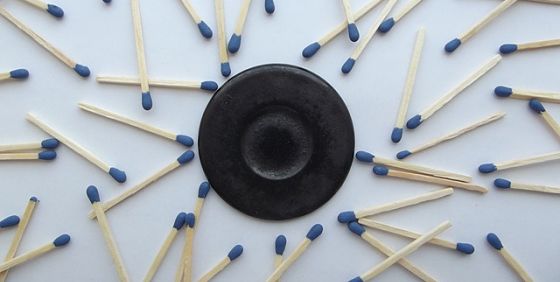It is estimated that male factors play a role in around 40% of all cases of infertility. For a man to be fertile he must have sufficient numbers of sperm that can successfully make their way to the egg and fuse with it to create an embryo. Low numbers of sperm, sperm abnormalities, hormone imbalances and anatomical irregularities can all play a part in disrupting this process.
In many cases of male infertility, sperm abnormalities are the primary cause. Spermatogenesis, the development of sperm, takes around 3 months, during which time the sperm need optimal conditions to become healthy and viable.
Many environmental and dietary factors can interfere with normal sperm development during this time, including exposure to toxins and pesticides, consumption of cigarettes and alcohol and stress. Treatment with Chinese herbal medicine, acupuncture and nutritional supplements can support and protect the developing sperm.
A prospective study examining the effect of acupuncture on men with very low sperm counts found a “significantly higher percentage of motile sperm” in men in the treatment group.
Another study found an increase in motility and normal sperm ratio after a course of acupuncture treatment, and a subsequent increase in fertilisation rates for ICSI (intracytoplasmic sperm injection) procedures in an IVF cycle.
Acupuncture may work by reducing inflammation, enhancing the immune system and invigorating circulation to the testes and epididymis.
A commonly prescribed Chinese herbal formula prescribed for male infertility was found to enhance sperm density, motility and percentage of normal sperm, as well as a reduction in anti-sperm antibodies.
A few lifestyle changes can dramatically increase the health and vitality of your sperm –
~ If you are a smoker, now is a great time to quit. Cigarette smoke damages the DNA in sperm, affecting the health of your child. Men and women who smoke are more likely to take longer to conceive naturally.
~ Moderate alcohol intake. Alcohol is known to decrease testosterone, lower sperm count and reduce the numbers of normal shaped sperm. This effect is seen after about 5 drinks a week, but men who have more than 25 drinks a week have the poorest sperm quality.
~ Testes hang outside of the body for a reason – they function optimally at a slightly lower temperature. Tight underwear and clothing increase the temperature in the scrotum, which in turn is associated with a decrease in sperm count and sperm motility. Go for a looser fit, and avoid the sauna.
~ Eat organic. Pesticides generally work by disrupting the nervous system of insects – studies have linked exposure to organophosphate pesticides to changes in brain development, behaviour and fertility. Minimise your exposure by choosing organic where you can. The Environmental Working Group has published a list of the most contaminated produce.
~ Avoid exposure to chemicals including cleaning products, work chemicals, and personal care products such as deodorant. A recent study confirmed that men exposed to chemicals take longer to conceive.
~ Adopt strategies to manage stress levels. Research has suggested that stressful life events affect sperm morphology and motility, and workplace stress lowers testosterone. Stress also causes oxidative stress in the body, a process where unstable cells called free radicals damage the cells in our body.
~ Take your vitamins. Antioxidants, nutrients and vitamins are essential to optimise sperm health and it can be difficult to get enough from diet alone. There are a number of male fertility formulas on the market – try to find one that contains CoQ10. CoQ10 is a powerful antioxidant and has been shown in studies to improve sperm health parameters. Consider supplementing with extra zinc – around 50mg a day is ideal if your sperm are struggling.
Sperm contribute half of your baby’s genes. Whether or not you have been diagnosed with infertility, it is worth being in the best health possible to give your baby an optimal start to life.
